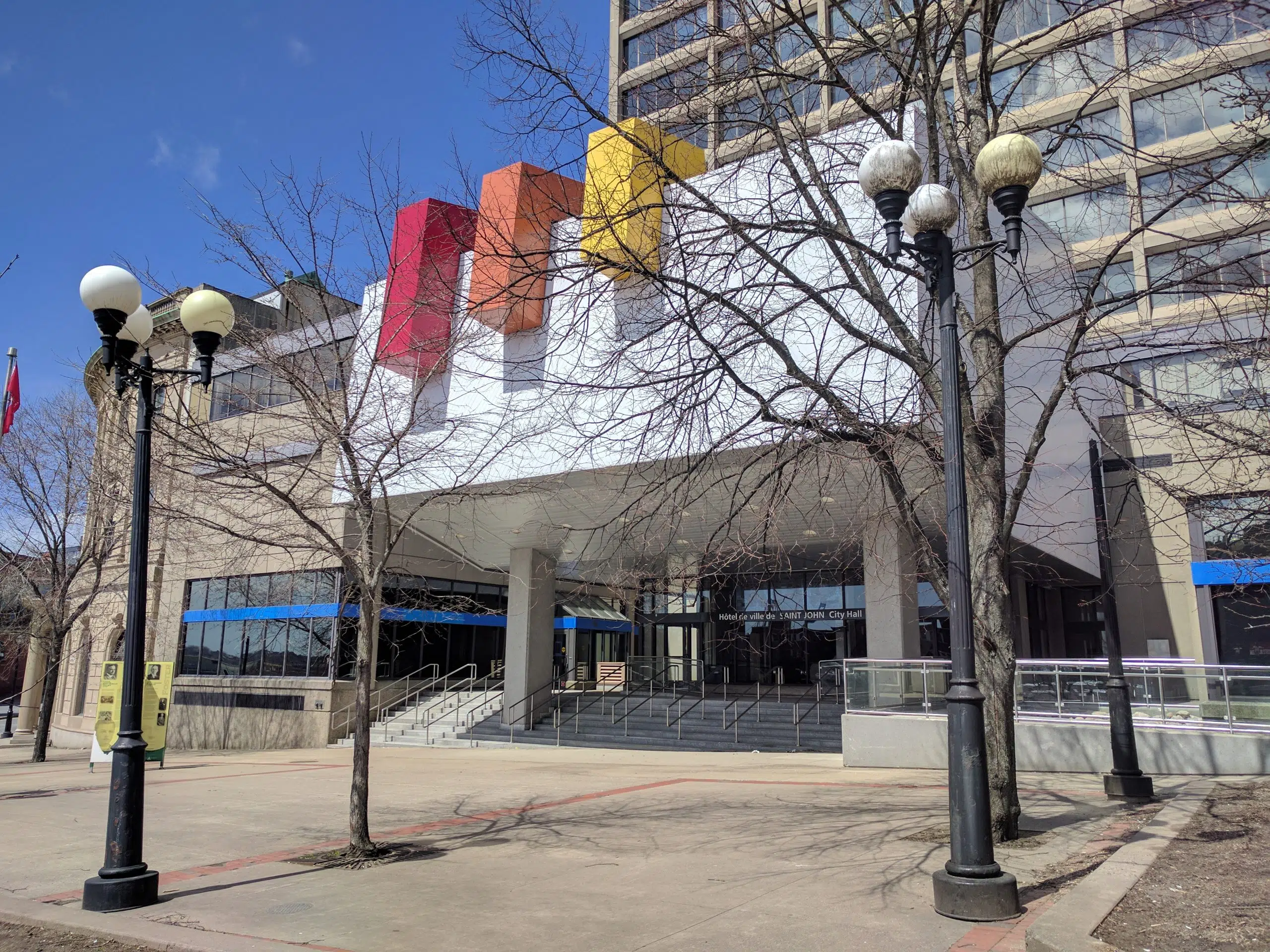
The exterior of Saint John City Hall is pictured in this file photo. (Staff photo)
Saint John’s property tax rate could drop to its lowest level in more than two decades next year.
Members of the finance committee got their first look at the proposed $164.7-million budget on Thursday.
Staff are proposing that council reduce the tax rate by 7.5 cents to $1.71 per $100 of assessed property value in 2022.
That would be the lowest tax rate the city has seen since 1998, according to a staff report to the committee. It would also put the city three years ahead of the long-term financial plan tax rate target.
Massive increases to the city’s property tax base are the main reason for the lower tax rate, but those increases are mainly due to market adjustments rather than new construction.
“This year is an outlier in terms of tax base growth,” Kevin Fudge, the city’s chief financial officer, told committee members during their meeting.
Because of that, Fudge said it made more sense to reduce the tax rate rather than use the extra revenue on new spending in order to see if the growth is sustainable.
“Without a reliable trend of data and in addition to the fact that we just went through a long period of stagnant growth, it’s risky to make long-term decisions based on a singular year of tax base growth,” he said.
Figures from Service New Brunswick show the city’s tax base climbed by 6.24 per cent over the past year — the highest amount since 2010.
Staff noted that tax base growth ranged from 5.23 per cent to 9.08 per cent between 2009 and 2012, but the city fell into a structural deficit years later without a long-term financial plan.
Fudge said a lot of uncertainty remains over the months ahead, pointing to the volatility of a recovering economy during a global pandemic.
He said the city also expects more requests for reassessment than usual, which could impact the city’s financial picture in 2023.
The proposed 2022 general operating budget is up 6.4 per cent year over year, which includes the realignment of the Saint John Parking Commission, Saint John Transit Commission, and Industrial Parks.
It also includes about $1.9 million in Safe Restart Funding to address the $991,000 carryforward deficit from 2020 and estimated parking losses of $876,000 in 2022 due to the economy not being fully recovered.
Coun. David Hickey, who sits on the finance committee, said lowering the tax rate by such a significant amount is something to be proud of.
“I think it’s a testament to us sticking to a long-term financial plan when two years ago we were in the midst of fixing a structural deficit that was extremely trying,” said Hickey.
The proposed budget will come back to the finance committee in November before council is expected to give its final stamp of approval in mid-December.







